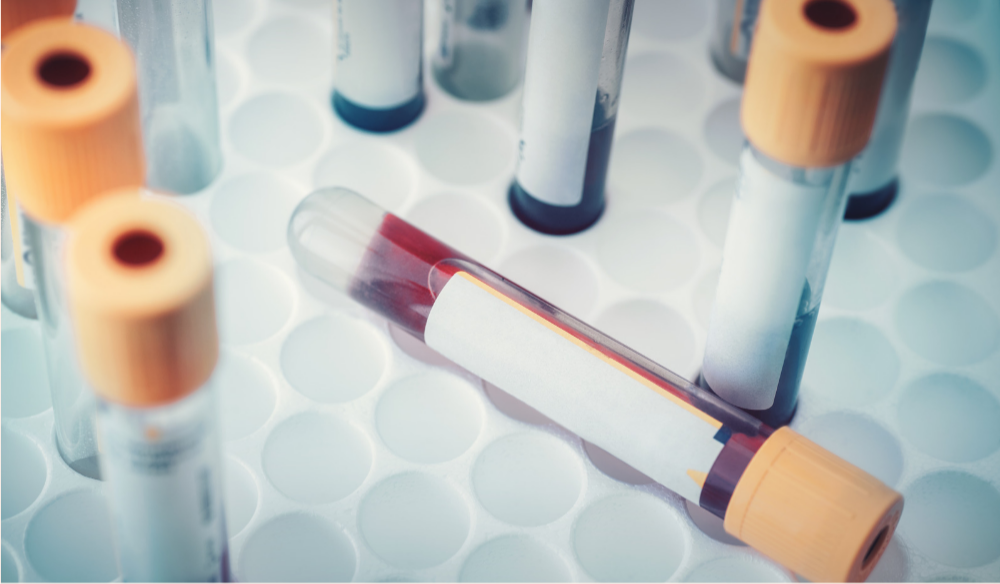Tips for testing to get the proper diagnosis, treatment and baseline bloodwork.
Testing for PCOS is more complicated than just a simple run of the mill ultrasound. Most conventional (think NOT progressive) follow a more rigid Rotterdam diagnostic criterion which requires two of the three to be checked in order for a PCOS diagnosis. Please note research is starting to show that more than this criterion and sometimes less is needed for a proper PCOS diagnosis.
According to the Rotterdam criteria, a clinical diagnosis of PCOS requires that a patient present with two of the following symptoms:
- Oligo-ovulation or anovulation.
- Hyperandrogenism, clinical (including signs such as hirsutism) or biological (including a raised free androgen index or free testosterone).
- Polycystic ovaries visible on ultrasound.
BUT…. Functional doctors (think progressive) are more inclined to a whole-body approach with testing especially after suspected or confirmed PCOS diagnosis. Some of the most effective medical doctors in the world test for the following initially and then every 3 to six months as they gauge treatment options and efficacy. Personally, I was able to effectively treat my PCOS with a specialist once I was introduced to regular testing of more than just the basics. Check out the quick list below. Scroll further for in depth breakdown of each test.
- Ultrasound of ovaries and reproductive organs
- Progesterone
- Estrogen
- Testosterone full panel
- DHEA
- Prolactin
- Thyroid full comprehensive panel
- AMH (if trying to conceive)
- FSH
- LH
- Lipid profile
- Hemoglobin A1c test
- Glucose Test
- Insulin Test
- Fasting plasma glucose test
- Oral glucose tolerance test
- Vitamin and mineral panels specifically iron, ferritin, vitamin D, vitamin B, magnesium and Zinc.
PROGESTERONE Test:
Women with PCOS can often have higher or lower levels of progesterone leading to heavy bleeds or absent periods altogether. Issues with progesterone can also be one of the culprits for annoying spotting and breakthrough bleeds that can occur in women with PCOS. Adequate Progesterone production is important for regular periods as well as supporting ovulation and implantation.
ESTROGEN:
PCOS is characterized by excess androgen levels. Although many think excess androgen would lead to estrogen being lower, it is the opposite most of the time with PCOS! Women with PCOS often have higher than normal levels of estrogen along with insufficient progesterone levels which prevents ovulation and leads to missed periods, irregular bleeds and spotting. Excess estrogen can also add to stomach fat in many women.
Testosterone, androgen and DHEA testing:
Since PCOS is characterized with excess androgens it makes sense to test for all variances of testosterone and androgens. DHEA is in particularly important to test for as it can identify a more complicated form of PCOS (inflammatory) rather than your typical Insulin resistant PCOS. High Testosterone/Androgens and DHEA leads to hair loss, lack of ovulation, increased body hair and acne often present in PCOS. It is one of the most focused on imbalances to correct. DHEA specifically can indicate adrenal fatigue/issues which is important to identify and treat!
Prolactin:
Often women can be mis diagnosed with PCOS when they actually have a prolactin issue. If prolactin is high, you may have issues ovulating and conceiving. Identifying this issue early is important and can easily be treated with OTC supplements or a short-term prescription! Even if you DO have PCOS you should keep an eye on these levels if trying to conceive and having trouble.
FSH- Follicle Stimulating Hormone:
FSH is made by your pituitary gland and is often lower in women with PCOS. FSH testing can be used to help diagnose symptoms that indicate a hormonal imbalance as well as thyroid issues.
LH- Luteinizing hormone:
LH is a hormone that you will become VERY familiar with when trying to conceive with PCOS. It is a tricky hormone and often comes in very different variances with women who have PCOS versus those who do not. Even those who do not have PCOS can struggle identifying when that good ole LH surge happens which usually indicates ovulation is happening. In women without PCOS, we may have higher levels of LH throughout our entire cycle which can almost always show a positive ovulation test (urine LH strips). For some women with PCOS it is also common to have consistently low levels of LH indicating that no ovulation surge will occur in that cycle. YES, LADIES you can still bleed monthly without ovulating.
Vitamin and Mineral panel testing:
Women with PCOS often have lower levels of key vitamins and minerals such as low iron, vitamin B, D, zinc and magnesium. These can easily be supplemented and can be maintained with a high quality vitamin once optimized. Speak to your doctor or specialist about supplementing even if on the low end of “normal” when your results come in. Ongoing and extreme Iron/ferritin deficiencies can lead to fatigue, depression, extreme hair loss and thinning and even much more serious health complications that require hospitalization and IV infusions. Low vitamin B can be mostly characterized by unsettling fatigue and brain fog. Low vitamin D can manifest into issues with fertility, cycles and mood to start. Low zinc can lead to fertility issues, brain fog, hair loss, skin issues and much more. Low zinc is often indicated in many women with insulin resistant PCOS. Magnesium Helps with absorption and conversion of glucose into energy as well as calming adrenal glands which is important with many types of PCOS. Low magnesium can contribute to increased insulin issues, adrenal issues and more!
FULL Thyroid panel:
Women with PCOS can commonly suffer from thyroid disorders. It is important to get a FULL thyroid panel run as the basic TSH test is not indicative enough in regard to what is happening or could be happening with your thyroid function. Thyroid issues can cause weight gain/loss, hair loss, brain fog, fertility issues and skin issues. Thyroid diseases can manifest into cancers and tumors. This is important to monitor regardless of PCOS or not.
Lipid Profile:
Lipid profiles check your cholesterol and triglycerides. Not all cholesterol is bad, some we need. There is a “good” and “bad” cholesterol. Low-density lipoprotein (LDL) is the “bad” type which can stick to blood vessel walls, and over time clogging arteries which leads to blood clots and heart attacks. Women with PCOS are at a higher risk of having high cholesterol due to BMI and other factors. Raising the chances of stroke and heart disease. DO NOT SKIP OUT ON THIS TEST!
Triglycerides are another type of fat that MD’s measure when testing cholesterol in patients. High levels of triglycerides can increase your chances of heart attack or stroke, especially if you have low levels of “good” cholesterol. High triglyceride levels suggest an increased risk of diabetes (which women are already at high risk of developing due to insulin resistance).
Hemoglobin A1c test
This is a non-fasting blood test that shows your average blood sugar levels for the past 2 to 3 months. Doctors will commonly use it to diagnose prediabetes or diabetes.
Glucose Test
Glucose tests are useful for doctors when figuring out if you have diabetes. Women with PCOS are at an increased risk of developing type 2 diabetes: helping figure out if you have diabetes: one study, conducted in 2017 in Denmark, found that women with PCOS were 4 times more likely to be diagnosed with diabetes. In addition, women with PCOS are likely to be diagnosed with diabetes four years earlier than non PCOS women on average.
Insulin Test, Fasting plasma glucose test and Oral glucose tolerance test
In order for your doctor to see how your body reacts to insulin it is helpful to test using an insulin test, fasting plasma glucose and oral glucose tolerance test. Insulin sensitivity is a driving force behind PCOS and it is imperative for medical doctors to get a full picture, so they understand exactly how sensitive your body is and to fully understand blood sugar levels.
Love and light,
Emily and Sasha


